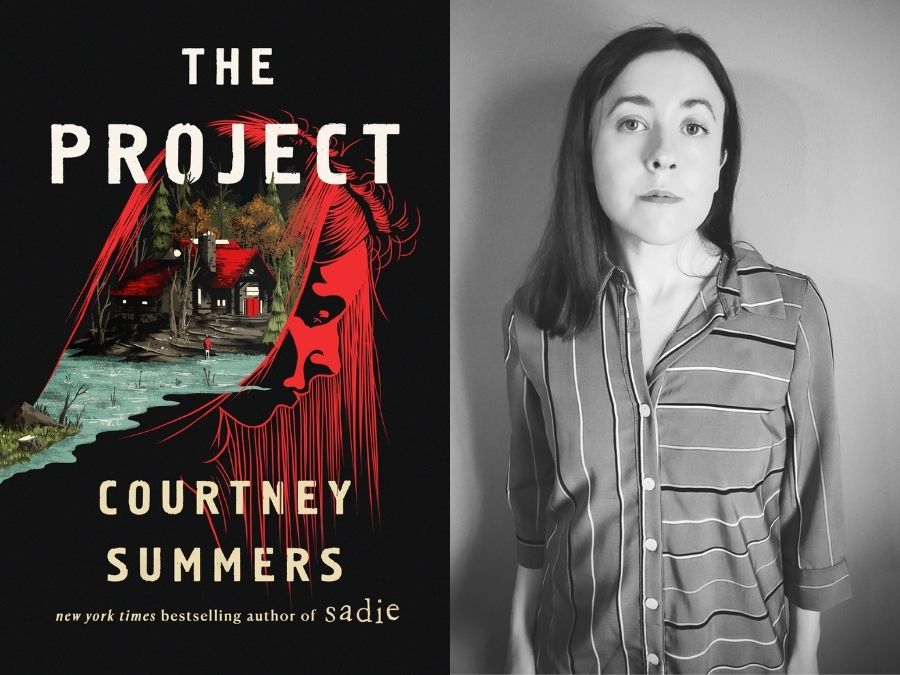The Joy of Teaching Media Literacy Through Stories, a guest post by Christine Platt
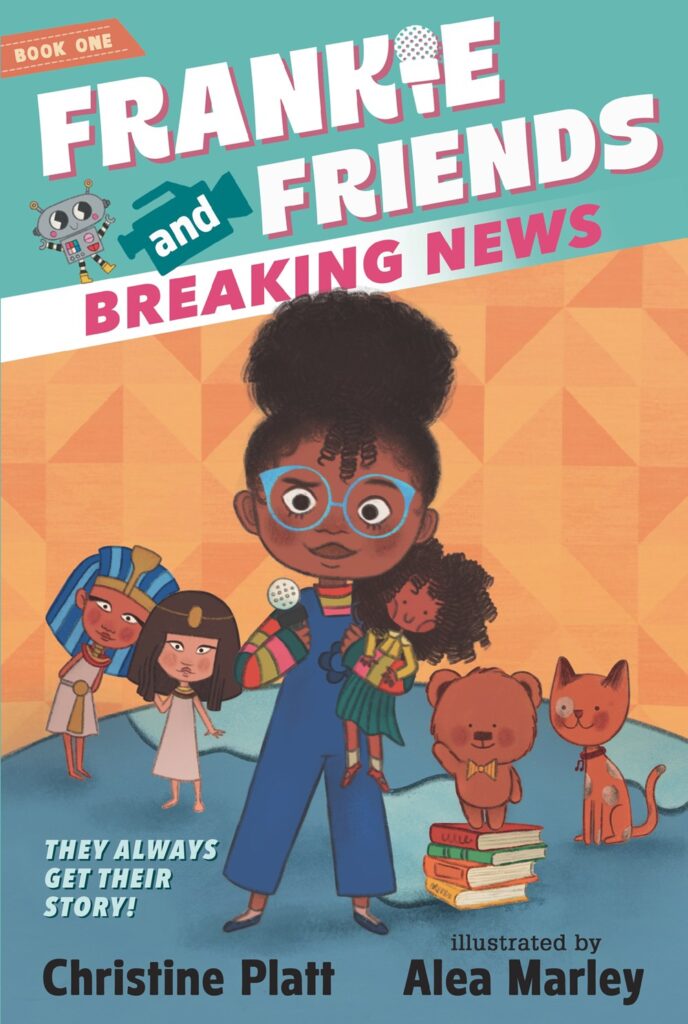
Before I began my career as an author, I was an avid reader who believed in the power of storytelling as a tool for personal and societal change. Stories have long been known to have the unique ability to do many things at once—from educating and entertaining readers to teaching tolerance and building empathy. But it was through writing that I truly discovered stories as a source of empowerment. Because there are few things more empowering than being given answers to questions you’ve been too afraid to ask. Especially when this information is presented in a fictional story where you can see yourself without well, actually seeing your self.
Fiction allows us to learn through characters who think and behave like us. Readers are expected to be surveyors of protagonists whose lives are similar and familiar. There’s an accepted cognitive dissonance, an understanding that authors want readers to be conflicted about their feelings, thoughts, and beliefs. Because that’s what makes a good story, right?
ADVERTISEMENT
ADVERTISEMENT
If only such grace was given to us in real life.
It’s one of the reasons I wrote Frankie & Friends, a chapter book series which delves into the world of media literacy. Because what better way to empower children about media literacy than by equipping them with the knowledge, skills, and abilities to think critically about the information they receive and share? And doing so without making them feel guilty or ashamed about their own questions and choices? Every author visit, every interaction in elementary schools reminds me of the importance of using storytelling as a teaching tool. And doing so has been an absolute delight. Here are just a few highlights of the immense joy that comes with teaching media literacy to young children.
The Joy of Sparking Curiosity
Witnessing the sheer curiosity of young minds is among the many rewarding aspects of teaching through storytelling. Rather than engaging in lessons on “do’s and don’ts,” I watch children’s eyes widen with questions and wonder as they see themselves on the pages of books. Of course, young people are eager to learn about the world of print and digital media, the latter being the world they were born into and not only expected to inherit but also, make great advancements. Yet instead of being equipped with the knowledge to do so, children are more often told what they shouldn’t do and what they should be wary of in the media. And while precautions are certainly necessary and important, they can be stifling without context and more importantly, without creating an environment where children feel comfortable and confident to tap into their natural curiosities. Stories allow parents, educators, and librarians to support and empower children to question the information they encounter… just like the characters they read about. And there is a shared joy when this curiosity is sparked.
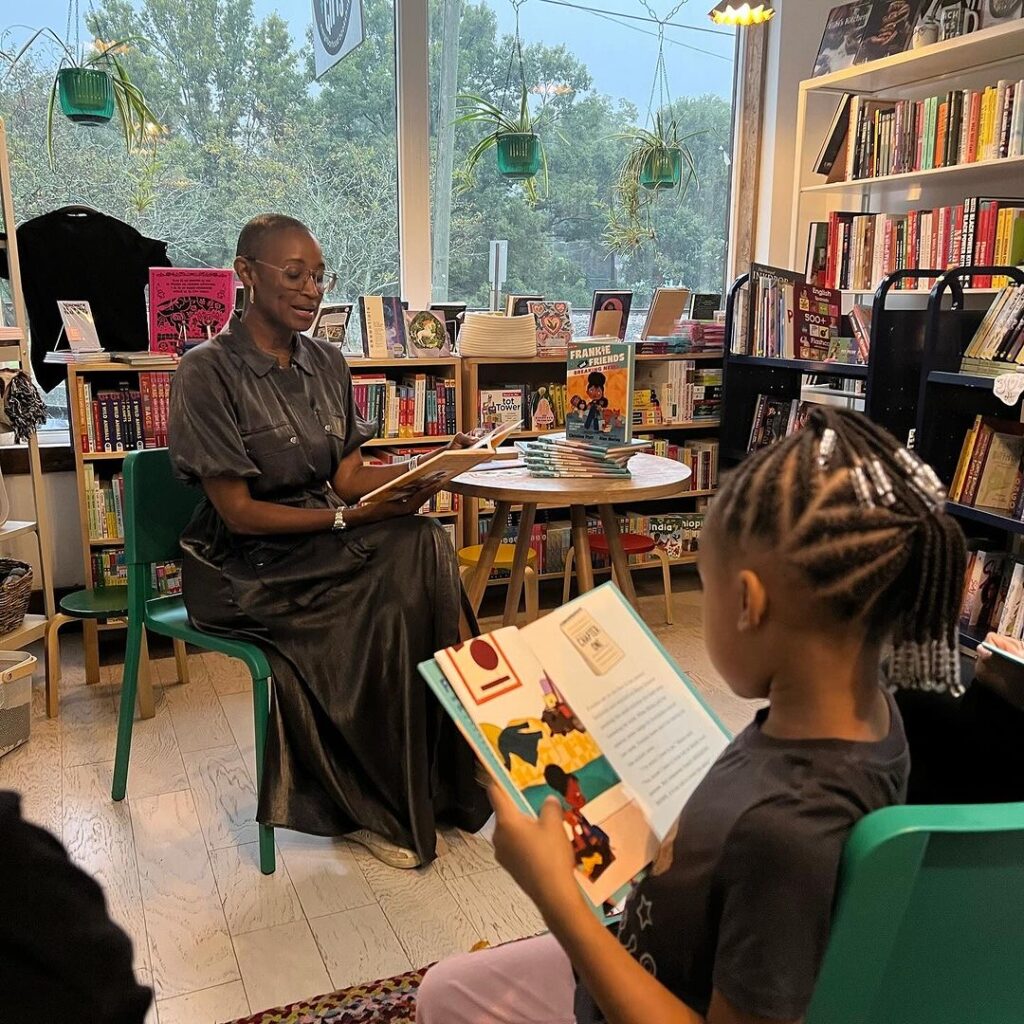
The Joy of Harnessing Creativity
Likewise, there is joy in teaching children how to harness the power of their creativity. When young readers observe characters creating their own media content (like Frankie’s News Show), they are inspired to be creative and do the same. During a recent school visit, I was absolutely thrilled when students asked if they could create a classroom newspaper. Their teacher happily agreed, recognizing their classroom newspaper as an opportunity to tap into her student’s innate creativity while simultaneously teaching them about the basics of effective media communication.
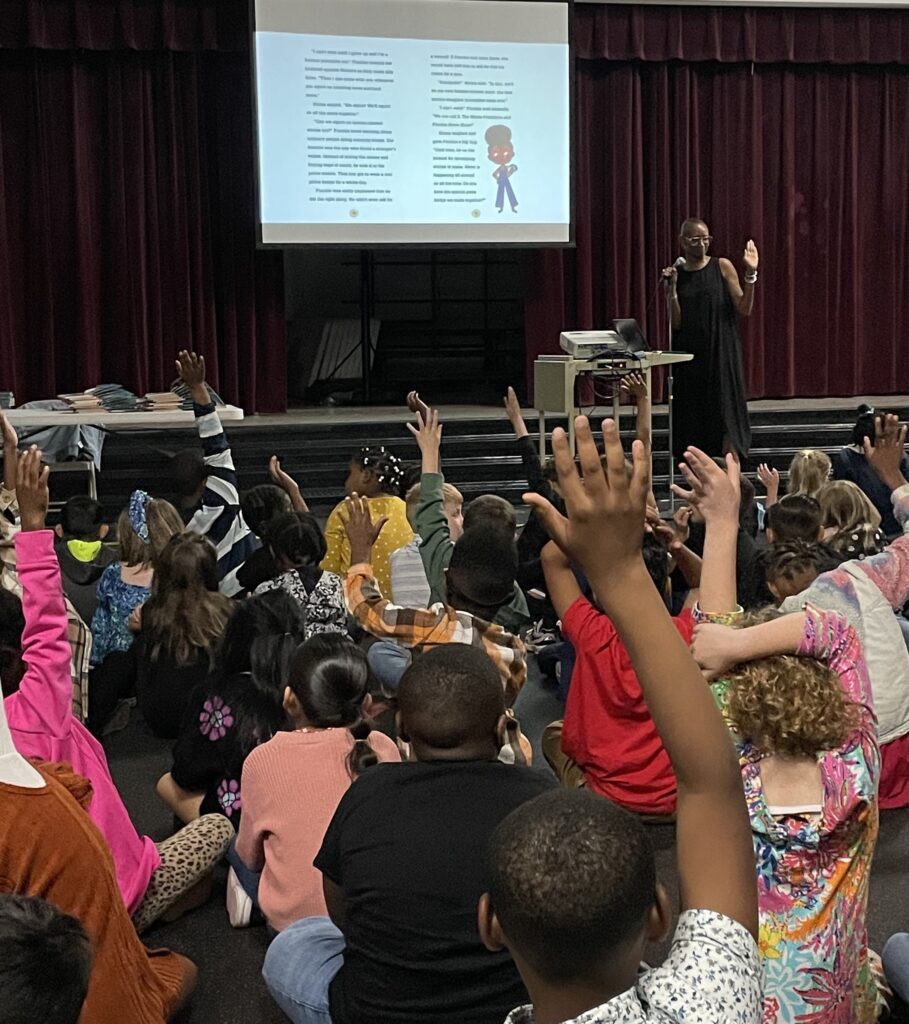
The Joy of Nurturing Critical Thinking Skills
Without a doubt, it is necessary for children to learn how to analyze and evaluate the messages they receive through various media channels. Stories allow children to engage in discussions that encourage critical thinking without directly calling into question their own decisions. Critically thinking about characters’ actions and decisions allows young readers to develop a discerning eye for bias, stereotypes, and misinformation that can later serve as points of reference when faced with the same scenarios and challenges. The goal? To empower children to be active consumers of media rather than passive recipients. There is no greater joy than watching children learn to question the content they are consuming and sharing—a skill they can continue to refine as they grow older and wiser.
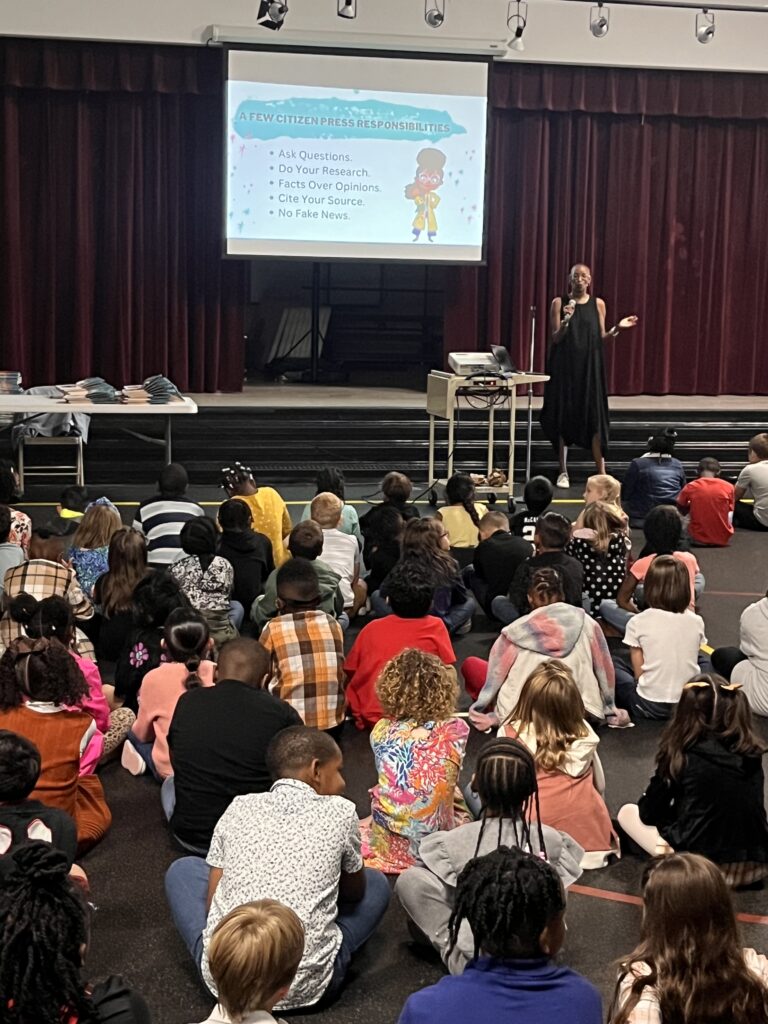
The Joy of Empowering Digital Citizens
In today’s digital age, it is more important than ever to empower children with the skills to navigate the online world safely and responsibly. Storytelling allows adults to ‘teach rather than preach’ about how to recognize and avoid online dangers such as cyberbullying. When we empower children to be thoughtful digital citizens, we encourage responsible online behavior while also helping them understand the impact of their actions. It has been such a joy watching young readers make the connection between their actions and the consequences of their actions, especially because I get to see their joy—a feeling that has a direct connection to being educated and empowered.
ADVERTISEMENT
ADVERTISEMENT
Being on tour for Frankie & Friends has been an incredible experience. There is an undeniable enthusiasm for learning that radiates from young readers, a joy that is contagious. As we explore the world of media together, I am continuously inspired as I watch their creativity and curiosity come alive with each storytime and discussion. I see them becoming more educated and empowered when given the tools to navigate our everchanging and ever-evolving media landscape. Nurturing the joy of learning and critical thinking in the hearts of minds of young children has been equally nurturing and joyous for me.
Meet the author

Christine Platt is an author and advocate who believes storytelling is a tool for social change. She holds a BA in Africana studies, an MA in African American studies, and a JD in general law. Although her only daughter is now in college, Christine Platt continues to draw on their adventures together as inspiration for her children’s literature.
About Frankie and Friends: Breaking News
In a charming new chapter-book series by a social-change advocate, young Frankie emulates her journalist mama by reporting on household news with the help of her sister and an unlikely news crew.
Frankie’s mama is leaving to cover a breaking news story. Frankie, Papa, and Frankie’s teenage sister, Raven, are all proud of Mama, even though they miss her when she’s away. But Frankie has a great idea: she can make her own news show! After all, Mama has told her that news is happening around her all the time. With a little assistance from her friends—including her doll Farrah, Robert the toy robot, and her tabby cat, Nina Simone—Frankie prepares for her first “broadcast.” And when she hears someone crying in the house, she knows that’s the developing story she must cover. With humor, empathy, and imagination, Frankie gets the scoop—and learns that even mature older sisters can miss Mama sometimes. With sweet illustrations throughout, this engaging new series embraces communication and compassion and is a refreshing portrayal of Black women in journalism. Young reporters will learn the terms of the trade, which are clearly presented in the text and reinforced in a glossary at the end of the book.
ISBN-13: 9781536222098
Publisher: Candlewick Press
Publication date: 10/10/2023
Series: Frankie and Friends , #1
Age Range: 6 – 8 Years
Filed under: Guest Post
About Amanda MacGregor
Amanda MacGregor works in an elementary library, loves dogs, and can be found on Twitter @CiteSomething.
ADVERTISEMENT
ADVERTISEMENT
SLJ Blog Network
Endangered Series #30: Nancy Drew
Research and Wishes: A Q&A with Nedda Lewers About Daughters of the Lamp
Review| Agents of S.U.I.T. 2
ADVERTISEMENT



